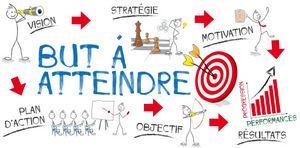 Practice makes perfect.
Practice makes perfect.
These simple words, so ubiquitous and readily accepted that you've probably never given them much thought, only tell part of the story. Yes, practice is vital, whether you're learning to speak Spanish, play the guitar, or parallel park - but there's more to it than that. It's not just practice you need, but rather, according to Anders Ericsson, deliberate practice.[1]
If you have an hour a day to spend doing something with your Spanish, that's fantastic. But you can't just skim a newspaper article or conjugate a few verbs and call that practice, at least not every day - it's too easy. Sure, it's better than not doing anything, but what you really need is deliberate practice which, Ericsson declares, "requires effort and is not inherently enjoyable." You have to focus on your weaknesses and work tirelessly to eliminate them.
A study of piano majors at The University of Texas at San Antonio[2] concurs:
Results indicated no significant relationship between the rankings of pianists' retention test performances and ... practice time, number of total practice trials, and number of complete practice trials.... [S]trategies employed during practice were more determinative of performance quality at retention than was how much or how long the pianists practiced.
So it's not how much you practice, but how you practice that matters most. According to Ericsson, even "natural talent" is irrelevant:
We agree that expert performance is qualitatively different from normal performance and even that expert performers have characteristics and abilities that are qualitatively different from or at least outside the range of those of normal adults. However, we deny that these differences are immutable, that is, due to innate talent. Only a few exceptions, most notably height, are genetically prescribed. Instead, we argue that the differences between expert performers and normal adults reflect a life-long period of deliberate effort to improve performance in a specific domain.
What is deliberate practice?
Ericsson's paper is packed with detail, but deliberate practice can be distilled into four components:
- Motivation / intention / effort
- Current skill level / knowledge as foundation
- Immediate, focused feedback
- Repetition
Deliberate practice in language learning
While there are no studies about deliberate practice specifically in regard to language acquisition, its effectiveness in domains as varied as piano playing[2], chess[3], and medicine[4] would seem to indicate wide applicability of this learning technique.
So if you're learning Spanish, you're in luck, because this is exactly how Progress with Lawless Spanish works. Our A.I., affectionately referred to as Kwizbot, analyzes your current knowledge to create a baseline and a personalized Study Plan. As you work your way through lessons, you take kwizzes to demonstrate your understanding of the material and get immediate corrections. When Kwizbot determines a satisfactory level of confidence in a topic, he updates your Study Plan so that you're always working on cementing your current knowledge, filling in gaps, and learning new material. Sound interesting? Log in or create an account and do some deliberate Spanish practice!
References
1 K. Anders Ericsson, Ralf Th. Krampe, Clemens Tesch-romer (1993). "The Role of Deliberate Practice in the Acquisition of Expert Performance." Psychological Review, 363-406.
2 Robert A. Duke, Amy L. Simmons, Carla Davis Cash (2009). "It's Not How Much; It's How - Characteristics of Practice Behavior and Retention of Performance Skills." Journal of Research in Music Education, vol. 56 no. 4, 310-321.
3 Neil Charness, Michael Tuffiash, Ralf Krampe, Eyal Reingold, Ekaterina Vasyukova (2005). "The Role of Deliberate Practice in Chess Expertise." Applied Cognitive Psychology, Special Issue: Recent Advances in Expertise Research, vol. 19, issue 2, 151–165. 4 K. Anders Ericsson (2004). "Deliberate Practice and the Acquisition and Maintenance of Expert Performance in Medicine and Related Domains." Academic Medicine, vol. 79, issue 10, S70-S81.